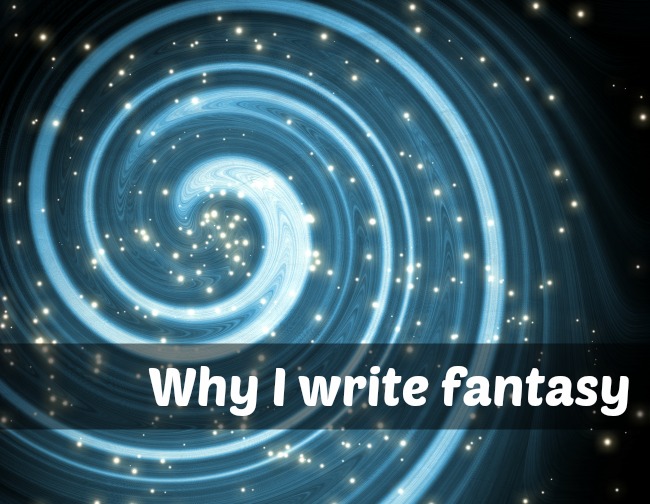Why Do I Write Fantasy?

If you imagine where I live in Colorado—beside a willow-draped creek that is home to wild coyotes, foxes, hawks and owls—you can guess how much inspiration this place gives me. And in the distance, from the windows of my writing room in our attic, I can see the snowy ridges of Rocky Mountain National Park and the Indian Peaks Wilderness Area.
So you might well ask: With all the magic of the natural world around me, why do I create new worlds when I pick up my pen? Why am I drawn to the imaginary realms of fantasy?
Some of the reasons I write fantasy are probably the same reasons why so many people read it. Because what’s more fun than visiting wondrous new places? What’s more exciting than encountering a magical land without the limits of our own, whether traveling alongside Merlin on the enchanted isle of Fincayra, or exploring Atlantis with Promi and Atlanta?
Another reason I write fantasy is it can help us better understand ourselves and our place in the world. From the mystical settings, to the profound quests that their characters must undertake, fantasy stories often filter our experiences into new perspectives—like the light refracted by a prism in the sunshine. Fantasy allows both writers and readers to focus on certain elements of plot and character that might be harder to portray in a story taking place in the real world.
But here’s the catch: For fantasy to succeed, it must feel true! We need to believe in the story and the people, places, and creatures it describes. True fantasy may sound a bit bizarre, but here’s what I mean: The world must be a place we want to enter and stay in for a while. The characters must have habits, dreams, challenges, losses, and triumphs that echo our own, that make us care about them. That’s how they reveal our deepest hopes and longings.
On top of that, the logic of the story must feel true. That logic can be wildly different from what we know in our everyday world—time can move backward, characters can speak the language of other species, and wizards can reshape the world. But that new logic should have its own clear rules that all of us can understand.
Fantasy is, in this way, like viewing our world through a bent mirror. When we look into that mirror, we see certain qualities emphasized and other qualities diminished. This gives fantasy special power to describe problems or situations that deserve extra attention. By bending the mirror, we are bending the rules of reality.
Think about Merlin’s deep connection with nature and his quest to explore and understand this connection. That reflects humanity’s deep need to be close to nature. Merlin’s worlds of Fincayra and Avalon are places where the characters experience harmony with each other and nature…as well as war and destruction. Those worlds include great suffering, but also great beauty, moments of wonder, and genuine hope for peace.
These are ongoing quests in our world, too. So when we reach the end of the story…maybe we don’t really have to set Merlin’s worlds aside. Maybe they can inspire us to think about how to renew and heal our own world.

